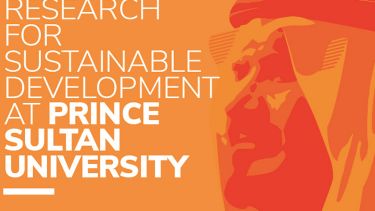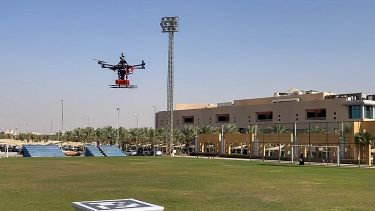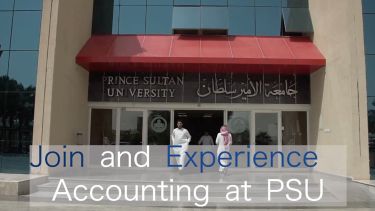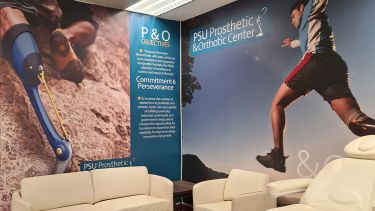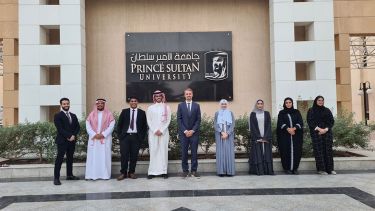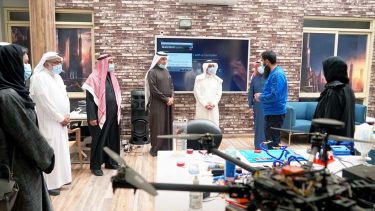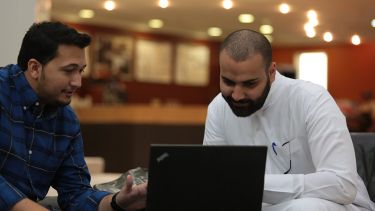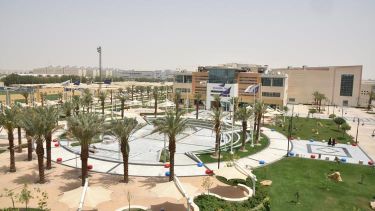
The College of Computer and Information Sciences at Prince Sultan University is at the centre of the institution’s successful adoption and integration of new technologies
The digital economy in Saudi Arabia is predicted to reach almost a fifth of the country’s GDP by 2025, with technology skills in high demand. Yet employers often struggle to recruit work-ready graduates. A study by the Communications and Information Technology Commission found that only 47 per cent of organisations in Saudi Arabia felt recent hires were equipped with the necessary digital skills.
Digital transformation is one of the core themes of Prince Sultan University’s (PSU) strategic plan. The institution wants to make its campus smarter through innovative technologies, provide cutting-edge resources to faculty and students, integrate technologies to ensure its infrastructure runs smoothly, and deliver quality library services through digital integration.
The College of Computer and Information Sciences is at the forefront of this process. “We have adopted strategic technologies to support digital transformation, from our learning management system and smart whiteboards in class, through to digital student assessment and antiplagiarism tools,” explains Wadii Boulila, associate professor of computer and information sciences at PSU.
The Information Technology Center at the university supports staff and students at all skill levels, from emailing them tips about tech-driven efficiency to communicating the benefits of storing research in the cloud. “The market here in Saudi Arabia is evolving and industry expectations are high, so students and faculty need these skills. With international companies recruiting our students we need to ensure they’re ready for that market,” Boulila says.
When new faculty join PSU, they are directed to the Teaching and Learning Center where they are introduced to the digital tools available to them. “We show them how to use the different platforms, how to design a course, design their assessments and which components to use,” explains Mamdouh Alenezi, dean of quality assurance and development at the college. “The university has invested a lot in the technical and physical infrastructure that enables digital transformation to happen.”
The Student Information System sits at the heart of this. It contains information on all university courses, enables staff to take attendance for classes, and allows students to provide immediate digital feedback on courses. Since this is integrated with the learning management system, teaching staff can build a full picture of students based not just on their attainment but other aspects of their student experience such as extracurricular activities or participation in community projects.
Students can also upload material to course modules, assessments and results can be hosted digitally, and students and staff can submit feedback. “This means we can reflect on previous experiences, seeing what works and what doesn’t,” Alenezi says. Student feedback surveys are regularly sent out and the results can be reviewed against benchmarks.
Students and academics have naturally become more familiar with using technology since the pandemic, but the College of Computer and Information Sciences and PSU more widely are constantly adapting the role that digital tools play in delivering courses. There is a platform that helps faculty deliver virtual labs so that students can access experiments from home, for example.
Profiles on faculty and student information systems bring together data from across different university systems and are accessible using a single sign-on. “On the faculty portal, staff can initiate their own profile displaying their current courses, previous experience, professional associations and memberships, alongside access to Scopus to see their published research,” explains Alenezi. They can also upload details of professional development, which can be used for annual evaluations. Crucially, everything is automated so staff spend minimal time on administrative tasks.
PSU recently signed an agreement with e-learning provider Coursera to introduce some of its guided projects and courses into its own programmes. A team at the university monitors outcomes to ensure goals have been achieved before adding more modules, and they have already successfully integrated around 20 per cent of Coursera for Campus courses.
When it comes to research, academics can apply for financial incentives based on published papers and citations – all via an automated system that links to the university’s core enterprise resource planning system which deals with payroll. The university built an integration layer on top of the various interlinking systems and there are clear boundaries in terms of what users can access, so any concerns around data security have been addressed. “We explained that there is a clear purpose for each system and why they need to work together,” Alenezi says. “Technology feeds into many of our key performance indicators.”
Despite the productivity benefits, the digital transformation journey has not been without its challenges. “There is often resistance to change. It’s normal for faculty to feel like this if we’re adding new tools,” says Boulila. Regular communication has helped the college overcome any reservations. There are frequent meetings highlighting the benefits of digital tools and demonstrating the importance of digital transformation for the university. The more staff and students see tangible benefits, the more they embrace new tools and approaches, Boulila adds. “They see that it can add a lot of benefits, from helping students and faculty to be more efficient, to making assessment paperless, increasing flexibility for staff and students in terms of how they learn and work. We can better manage resources and can collaborate from anywhere. So even those who were resistant are beginning to see the advantages.”
In future, the college hopes it can make better use of data to monitor and improve student performance and to further personalise the learning experience. There are also discussions about moving some of the university’s tools to a mobile app so students have easy access to course materials and timetables.
Ultimately, driving digital transformation is crucial if PSU is to compete against other universities and it is a key feature of Saudi’s Vision 2030. Rankings increasingly look at how institutions use technology to improve student outcomes and engagement, and the Saudi Ministry of Education has indicated that blended courses will become the norm. “Without digital infrastructure or upskilling faculty in these tools, achieving these goals will be very difficult,” Alenezi says.
Find out more about the College of Computer and Information Sciences at PSU.

